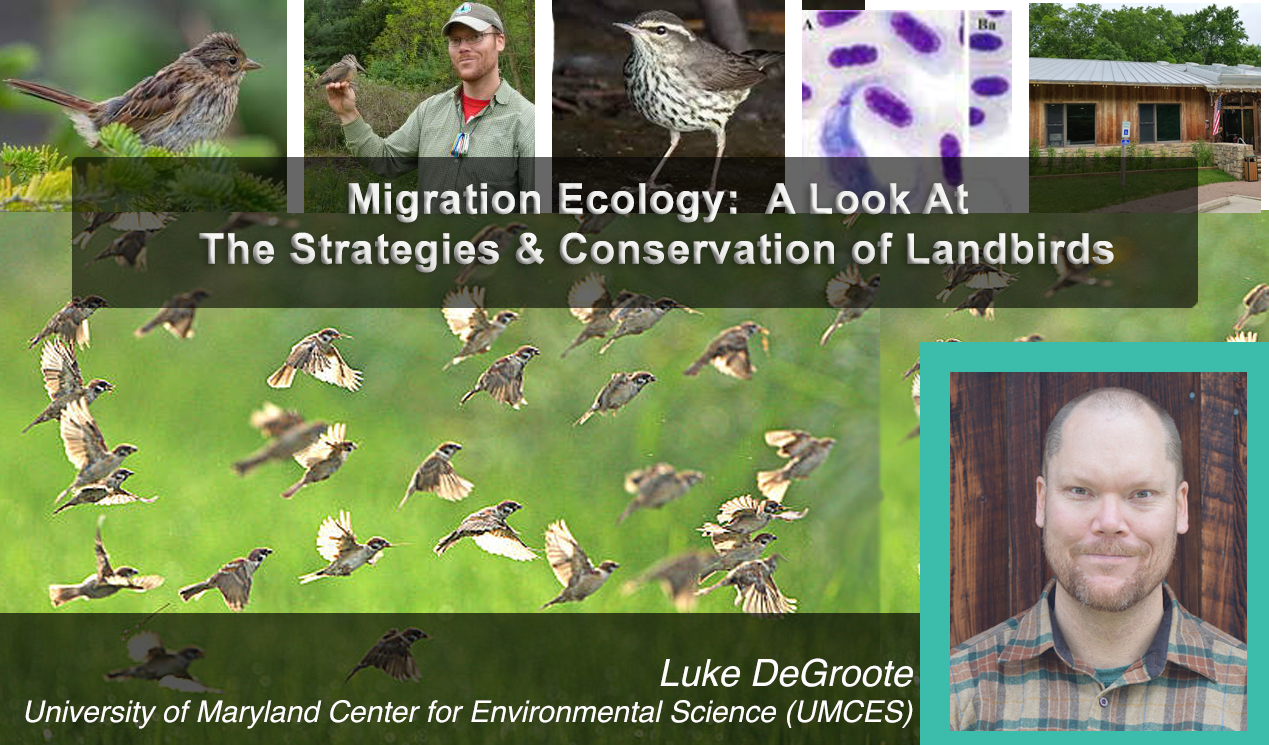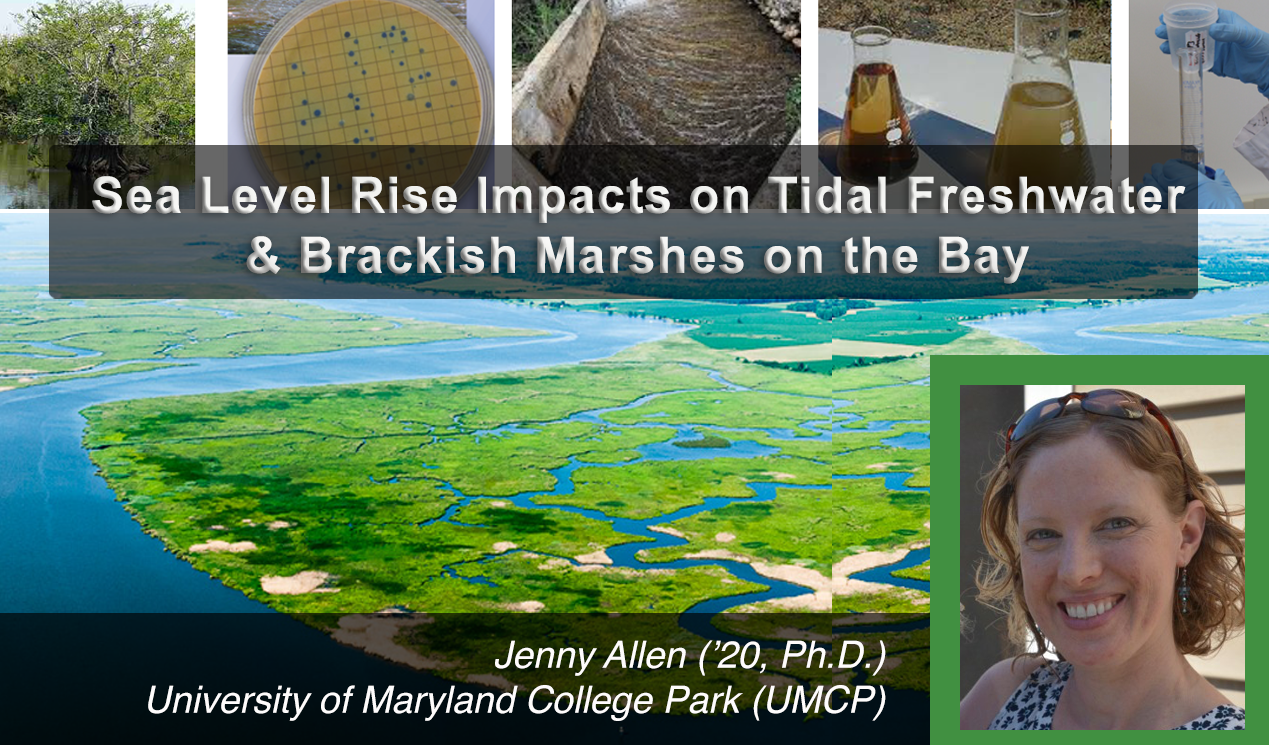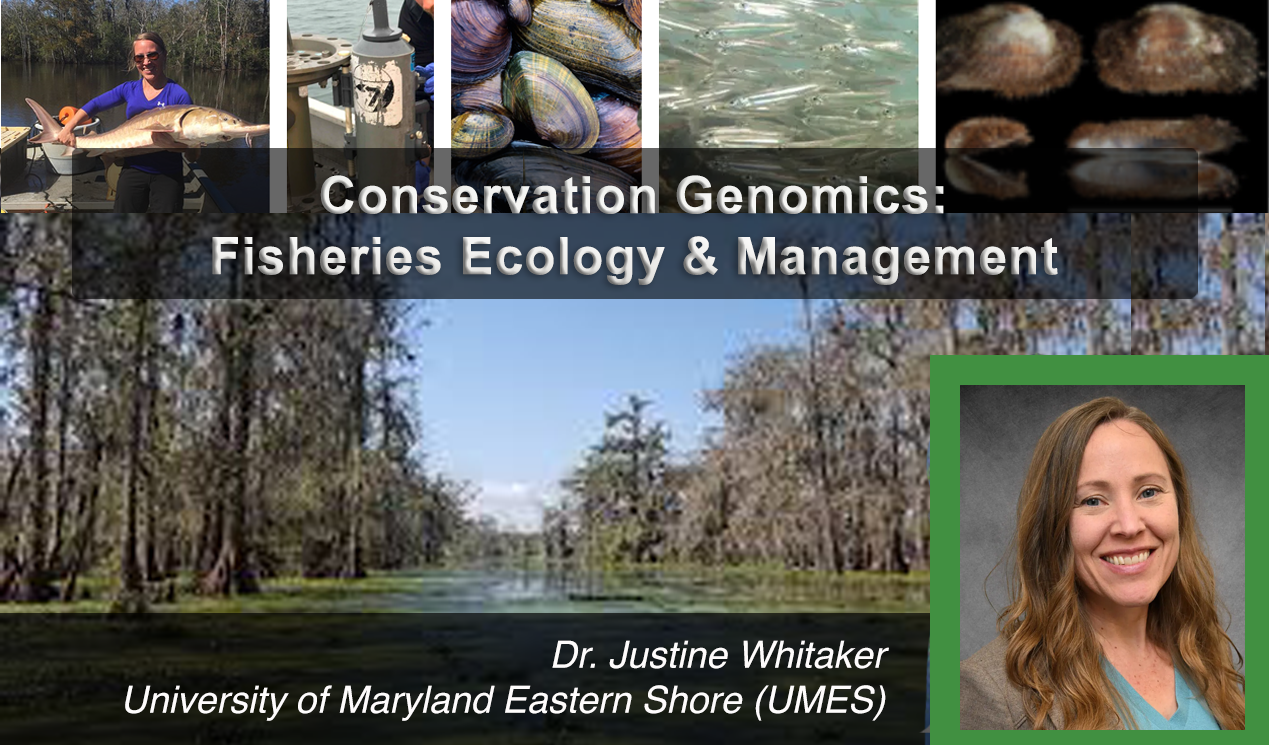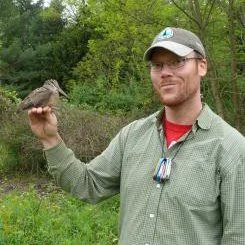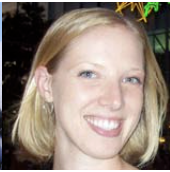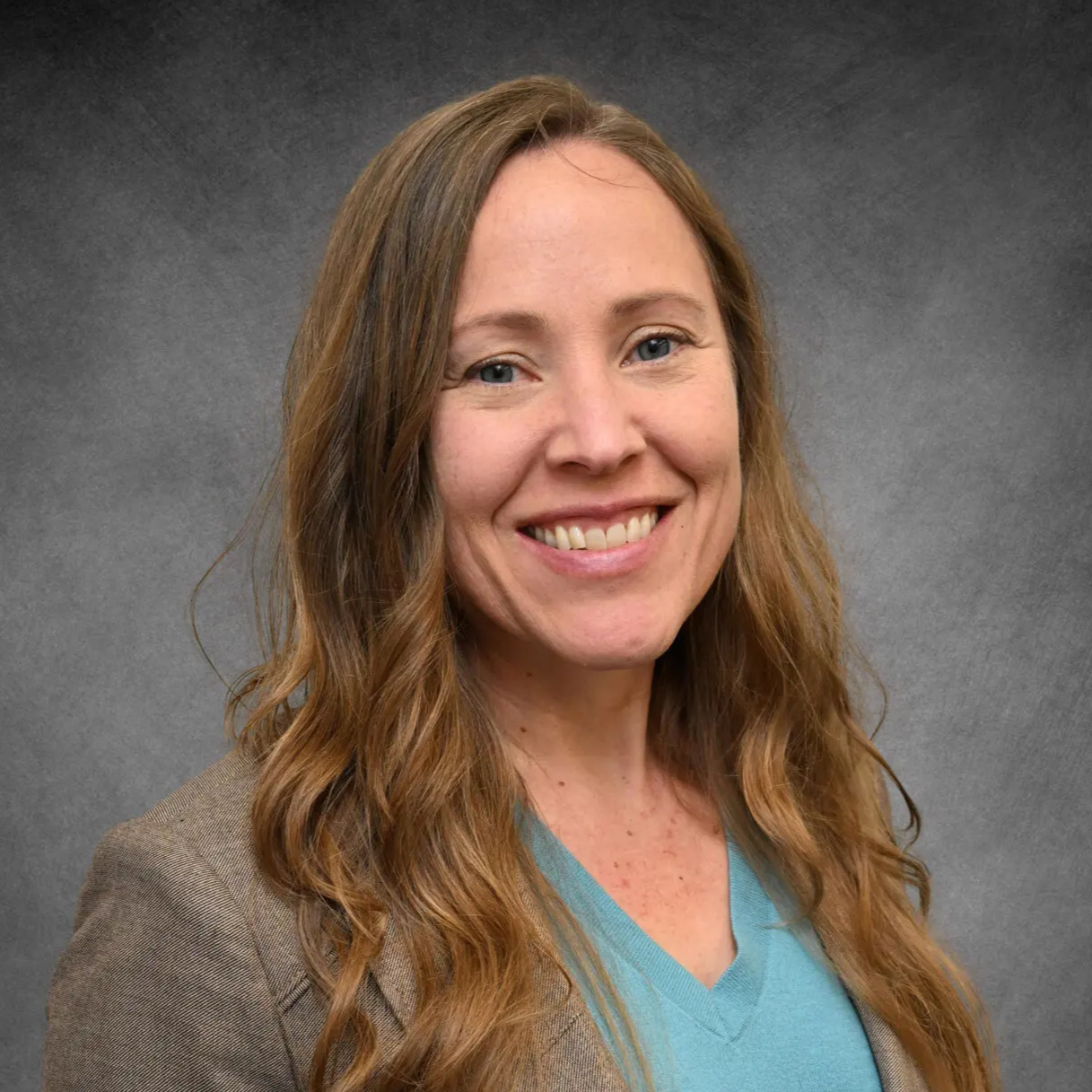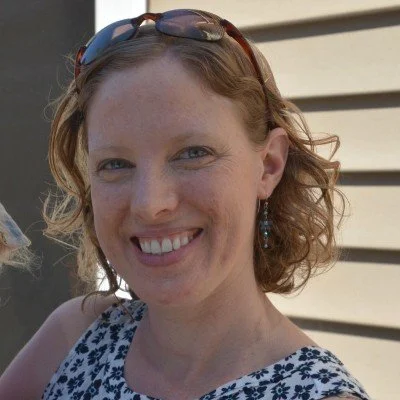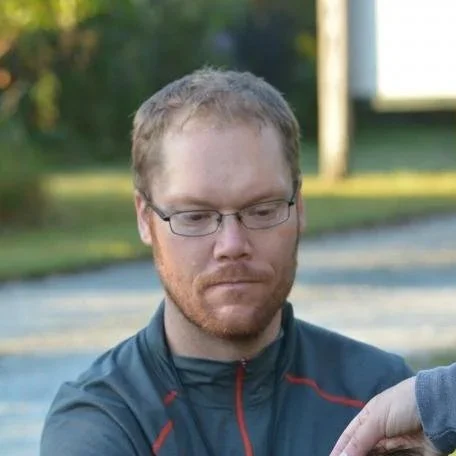ALUMNI CORNER
MEES RESEARCH CENTER
Luke DeGroote Photo Courtesy: Carnegie Museum of Natural History
Luke DeGroote (ECOL SYS, Ph.D.) is a fifth year MEES doctoral candidate at the University of Maryland Center for Environmental Science based at the Appalachian Laboratory. Advised by Dr. Emily Cohen, Luke’s dissertation research studies the ecology of migrant landbirds including stopover habitat characteristics and use, migration strategy and phenology and avian perception of patterned glass. Specifically, it focuses on the role dietary breadth and habitat selection en route on the migration strategies and conservation of landbirds.
Jenny Allen Photo Courtesy: UMCP
Jenny Allen (‘20, Ph.D.) is an Assistant Professor and coastal ecologist at the Community College of Baltimore County on the Catonsville campus. Advised by Dr. Andrew Baldwin (AGNR), Jenny graduated with her doctoral degree in MEES from the University Maryland College Park in Spring 2020. Jenny’s doctoral research focused on evaluating the effects of sea level rise on tidal freshwater oligohaline marshes. The research aimed to help inform the conservation and protection of these valuable and critical ecosystems.
Conservation Genomics: fisheries ecology & management
dr. justine whitaker (UMES)
Dr. Justine Whitaker Photo Courtesy: UMES
Dr. Justine Whitaker is an assistant professor of Environmental Science in the Department of Natural Sciences, University of Maryland Eastern Shore. She uses molecular tools to answer ecological and evolutionary questions about imperiled or managed fishes. Dr. Whitaker has a Ph.D. from West Virginia University during which she studied the population genetics and migratory behaviors of Lake Sturgeon. She used eDNA to track rare and invasive species as a postdoctoral scientist at the University of West Florida and later as an Assistant Professor at Nicholls State University. She is especially interested in collaborative projects that integrate multiple disciplines with outcomes that are applicable to conservation and management. At the University of Maryland Eastern Shore, Dr. Whitaker instructs undergraduate and graduate level biology, environmental science and toxicology courses including: fisheries management and conservation, molecular ecology, marine and environmental biology, as well as evolution and ecology. Dr. Whitaker, recently appointed as a MEES faculty member, plans to teach several MEES courses; cell and molecular biology (MEES 680), scientific writing & communication (MEES 615), and biological oceanography (MEES 621). Dr. Whitaker’s current projects includes: improving the diet characterization of two ecologically important species (Red Drum and Spotted Seatrout) in Louisiana utilizing molecular tools by identifying the fish and invertebrates in the collected gut and fecal samples, investigating the fine-scale population structure and phenotypes of Lake Sturgeon in collaboration with Dr. Amy Welsh at West Virginia University, and through a State Wildlife Grant developing a quantitative PCR assay for detecting the presence of freshwater mussels, a rare and vulnerable species which may be eradicated in some Louisiana rivers.
Dr. Whitaker earned her doctoral degree in wildlife and fisheries at West Virginia University in 2016, and after completing a postdoctoral fellowship at the University of West Florida working in marine systems, she joined the Department of Biological Sciences at Nicholls State University as Associate Professor. Her research focuses on using molecular tools to answer ecological and evolutionary questions with a focus on applications to management and conservation. Dr Whitaker earned her Master’s in Biology from William & Mary in 2004 and her bachelor’s degree in Biology from Longwood University in 2000. For more information on Dr. Whitaker, please click here.
sea level rise impacts on tidal freshwater and brackish marshes on the bay
jenny allen (Ph.D. ‘20)
Jenny Allen
Jenny Allen (‘20, Ph.D.) is an Assistant Professor and coastal ecologist at the Community College of Baltimore County on the Catonsville campus. Advised by Dr. Andrew Baldwin (AGNR), Jenny graduated with her doctoral degree in MEES from the University Maryland College Park in Spring 2020. Jenny’s doctoral research focused on evaluating the effects of sea level rise on tidal freshwater oligohaline marshes. Coastal marshes are the most productive ecosystems providing among other benefits; critically important habitat for fish and wildlife, pollutant retention and transformation as well as shoreline mitigation and flood attenuation. Prior to joining the MEES graduate program, Jenny earned her bachelor’s degree with honors (cum laude) in Nutrition Sciences from the University of Massachusetts Amherst (UMass) being on the Dean’s List for nearly every semester during her career at the university. Under the advisement of Dr. Curtice Griffin, Jenny conducted research at various university labs at the University of Vermont and Massachusetts, respectively, collecting both environmental (brachyrhaphis roseni, a species of fish found in the Amazon River), and toxicology (blood samples for zinc concentrations) data. After graduating from UMass, Jenny took two years off to gain work experience conducting biomedical research including genetic research on juvenile diabetes as a Research Assistant at the University Massachusetts Medical School and as a lab technician at Bayer Diagnostics which focused on diagnostic imaging using CGI software. These experiences working in a lab as well as a passion for working outdoors with the Natural Resources Conservation led Jenny to continue her studies at UMass and matriculated into the graduate Wildlife and Fisheries Conservation Master’s program in 2004. Continuing with Dr. Curtice Griffin as her graduate advisor, Jenny’s thesis research explored the relationship between fecal coliform, a group of bacteria found in the waste products of warm-blooded animals, concentrations and tidal restrictions in the salt marshes on Cape Cod, Massachusetts. Fecal coliform bacteria (FCB) can serve both as an indicator of water contamination and of disease-causing pathogens like viruses and other bacteria, from sewage and manure. Jenny’s research focused on the impact tidal restrictions play in FCB levels in estuaries and coastal waters After earning her Master’s just two short years later, Jenny further expanded her passion for tidal marsh ecology by accepting a position as a Research Associate at Florida Atlantic University managing several projects funded by the South Florida Water Management District, the Fish and Wildlife Commission and the United States Geological Society, respectively. In addition to overseeing the budget for these projects, Jenny also performed field duties which included collecting hydrologic data and vegetation analyses on tree islands and marsh/slough environments in the Everglades, as well as mapping tree islands using ArcGis and submitting project progress report to these agencies. Jenny matriculated into the MEES doctoral program in Fall 2008 under the advisement of Dr. Andrew Baldwin. Jenny’s doctoral dissertation research focused on the effect of sea level rise on tidal freshwater oligohaline and brackish marshes; specifically to examine accretion dynamics across the estuarine gradient of the Nanticoke River, a major tributary of the Chesapeake Bay, and to determine the relative contribution of organic and inorganic matter to accretion in the marshes.
The results suggested that the mechanisms controlling accretion dynamics and nutrient accumulation are complex and are likely driven by site-specific factors rather than estuary-wide factors. The research also cautioned that increases in salt water intrusion further threaten the ability of these marshes to keep pace with sea level rise, potentially resulting in the loss of an extremely valuable ecosystem. After graduating with her MEES doctoral degree in 2020, Jenny continued in various increasing roles including Adjunct Professor at Dean College and Roger Williams University, respectively and for three years as Research Coordinator at the Chesapeake Bay Natural Estuarine Research Reserve. In August 2021, Jenny accepted a position in her current role as Assistant Professor at the Community College of Baltimore County being the instructor for several introductory undergraduate environmental and earth system science courses. Students note her engaging teaching style, approachability and manageable coursework load and easy responsiveness to questions. For more information on Jenny, please click here.
MEES RESEARCH CENTER
Migration Ecology: A Look At the strategies & conservation of landbirds
luke degroote (‘20, ECOL SYS)
Luke DeGroote Photo Courtesy: UMCES/AL
Luke DeGroote (‘20, Ph.D.) is a fifth year MEES doctoral candidate at the University of Maryland Center for Environmental Science based at the Appalachian Laboratory. Advised by Dr. Emily Cohen, Luke’s dissertation research studies the ecology of migrant landbirds including stopover habitat characteristics and use, migration strategy and phenology and avian perception of patterned glass. Specifically, it focuses on the role dietary breadth and habitat selection en route on the migration strategies and conservation of landbirds.
Prior to joining the MEES program, Luke, an avid explorer and committed to environmental conservation and education, earned his Bachelor’s with distinction (cum laude equivalent) in wildlife ecology from the University of Wisconsin-Madison in 2001. Upon graduation, Luke participated in various research projects across the country with state, federal, and local organizations in increasing roles: a Research Assistant at USGS and also at the National Wildlife Health Center banding birds and processing samples for the West Nile Virus (WNV). as well as working for over four years developing and implementing education programs as a Biological Scientist for the University of Florida North Florida Research and Environmental Center in Quincy, Florida; implementing them at local schools, fairs, and other non-profit agencies. This Buckeye continued his education by receiving his Master’s in natural resources from the Ohio State University (OSU); his thesis research investigated the effects of blood parasites on the behavior and energetic condition of migrating landbirds, an interesting and poorly studied topic. Under the advisement of Dr. Paul G. Rodewald, Associate Professor in the School of Environment and Natural Resources (SENR) at OSU, Luke collaborated with other labs on campus to quantify blood metabolites and blood parasites, managing to work out a novel technique for counting parasites and blood cells on slides using ImageJ software. The results and methodology was published in the Journal of Wildlife Diseases, and earned Luke an invitation to present his research in scientific sessions at the North American Ornithological Conference in Veracruz (2006). Luke has conducted research across the western hemisphere from Canada to Brazil, studying songbird migration, avian disease, bird-window collisions, breeding phenology, molt, and habitat use.
Since 2012, this father of three children has overseen the Carnegie Museum of Natural History’s avian research programs, including the longest continually running bird banding station in the United States. Using the long-term dataset, Luke has published research demonstrating that many species of birds are breeding 15 days earlier than they did in the 1960s. He has initiated new research tracking songbirds along their migratory journey utilizing state-of-the art radio transmitters and the Motus Wildlife Tracking System.
In an effort to further his commitment to conservation and partnership, Luke co-founded the citizen-science project BirdSafe Pittsburgh, which comprises of seven local organizations committed to researching and reducing bird-glass collisions. These efforts have resulted in the USFWS (US Fish and Wildlife Service) recognizing Pittsburgh as an Urban Bird Treaty City in 2015. Luke is a certified bird-banding trainer for the North American Banding Council (NABC), the director-at-large of the NABC since 2014, and a council member for the Eastern Bird Banding Association since 2015. Since entering the MEES graduate program, Luke has served in student affairs representing the MEES graduate students at the College Park Graduate School Council as well as one of the graduate representatives in the College Park Senate. Under the advisement of Emily Cohen, Luke’s dissertation research explores bird migration and the potential conservation implications of the interrelationships between migration strategy and diet, microhabitat selection, and the abundance of preferred habitat for migrating landbirds,
Specifically, Luke aims to test the predictions of habitat types used during migration, breeding, and will compare the species that breed and stopover in rarer habitat types vs those species that used more common habitat types. Luke’s research also aims to investigate the influence of physical and spectral properties of window glass designed to reduce collision risk to inform development of new collision reducing patterns and governmental policies. The research hopes that by further clarifying the stopover requirements and resulting migration strategies of landbirds needed will help to conserve the millions of birds which travel at night searching for potentially limited habitats that are more and more likely located next to direct anthropogenic threats like windows. For more information on Luke, please click here.
